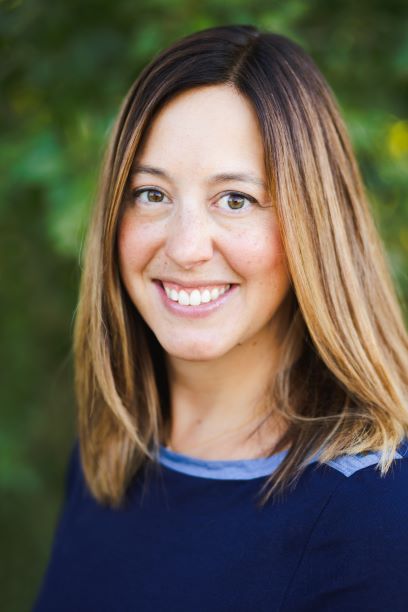3 Tips to Find Your Counseling Specialties
By Shannon Heers
As a counselor, therapist or social worker, trying to figure out how to narrow down what you’re interested in pursuing regarding your counseling specialties can be challenging! Especially if you are newer to the field, or just starting out in private practice after working as more of a generalist in an agency setting, you can benefit from having a process to help you determine what your areas of specialization may be.

Why Specialize?
The first question you want to have a clear answer to, for yourself, is the reason why it’s important to specialize. Perhaps you enjoy being a generalist and the variety that comes with treating different types of populations. Or maybe you just like so many different areas of counseling, it’s hard to narrow it down. The main reasons to specialize include:
- Getting more training and experience in one specific area makes you a better practitioner providing better treatment
- It helps to prevent burnout when you’re working with those clients/populations that you’re passionate about and well-trained in
- You can command higher prices if you do specialize, due to less counselors who have your same specialization
One myth associating with specialization is that you will only get clients who fit that specialization, and won’t have a chance to work with other types of clients. I have found this to be untrue. Clients assume that if you specialize in one area, you can provide treatment in many other areas. But if you can do everything, they will assume you can’t help them with their specific issue.
Here are 3 Tips to help you find your specialization.
Who do you love working with?

Think back on all of your previous counseling or social work experience. Did you love your job when you helped teens with disabilities find work, or hate when you had to work with adults with past trauma who were unable to live functionally? Even in jobs that you have loved, there were likely some types of clients that didn’t resonate well with you and your style. And that’s ok! Not everyone will like everything.
You can also consider your past personal experiences.
A place to start is to think about what significant life events made you want to become a counselor. Was it a sister who went through addiction, and knowing the pain that addiction causes family members? Or perhaps finding out more about your own social anxiety, or having a deep passion for working with kids of divorced parents from your own parental divorce experience.
Whatever the reason, start a list of several different populations of people that you love working with, and also list why. Break it down into age ranges also, and be as specific as you can. For example, you love working with postpartum moms but not teenagers who just had babies. Or you have a special affinity for trans folx but not other LGBTQ+ populations. You can also be as specific as working with first time Latina business owners.
This list will be your starting place, and will be a work in progress to add to or adjust as you learn more about yourself and who you want to work with.
Who do you NOT want to work with?
This question is also very important. On a separate list, write down who you do not do your best work with. Those for whom you don’t have the most sympathy and understanding. This doesn’t mean that these people are not deserving of care. Rather, it means that you shouldn’t be the one to provide that care.
Knowing yourself and what your weaknesses are will actually help people who you don’t want to work with find someone else who can better help them. As new counselors and social workers come out of graduate school, you’re often told (implicitly or explicitly) that you should be able to help everyone and work with everyone. Or at least that’s the belief that we have. Instead, try changing your mindset to the idea that specialization helps everyone, both you and your clients.
What is in-demand in your area?
It’s also a good idea to determine the needs, demands, and gaps in services in your geographic location. However you define your “area”, whether it’s your entire state if you’re offering online services, or the southern end of a larger metro-area, you want to do some market research.
Check out the job offerings in counseling to see what types of jobs are hiring for and what the pay range is. Look online at LinkedIn, Indeed, Facebook, and other job posting sites. Contact local community agencies and check their job postings. See if any of the job descriptions catch your eye. Try to identify patterns in what types of jobs are needed.
If you’re looking to work exclusively with kids, but there are no child and adolescent therapist positions available, that doesn’t mean that you cannot work with kids. But it does mean that there is more competition for these types of therapists in the area. Or maybe you notice that psych testing is a big need in your area, but you only have a master’s degree. Try to fit in your desires and who you want to work with, with what is available.
Pull it all together

Finally, put it all together! What have you noticed with your research and exploration? Have you narrowed down potential clinical specializations to a handful? If so, that’s a great start. Look around for opportunities for even more experience and training in these areas, and seek out a clinical supervisor or consultant who specializes in what you want to specialize in. This is a great start and should get you going in the right direction!
How can we help
Firelight Supervision offers specialized clinical supervision and consultation in a variety of areas. Check out our clinical supervisor bios to see what specialization areas we can provide supervision and consultation in, to see who might be a good fit clinical supervisor for you.
Author Bio
 Shannon Heers is a psychotherapist, approved clinical supervisor, guest blogger, and the owner of a group psychotherapy practice in the Denver area. Shannon helps adults in professional careers manage anxiety, depression, work-life balance, and grief and loss. Follow Firelight Supervision on Instagram.
Shannon Heers is a psychotherapist, approved clinical supervisor, guest blogger, and the owner of a group psychotherapy practice in the Denver area. Shannon helps adults in professional careers manage anxiety, depression, work-life balance, and grief and loss. Follow Firelight Supervision on Instagram.



